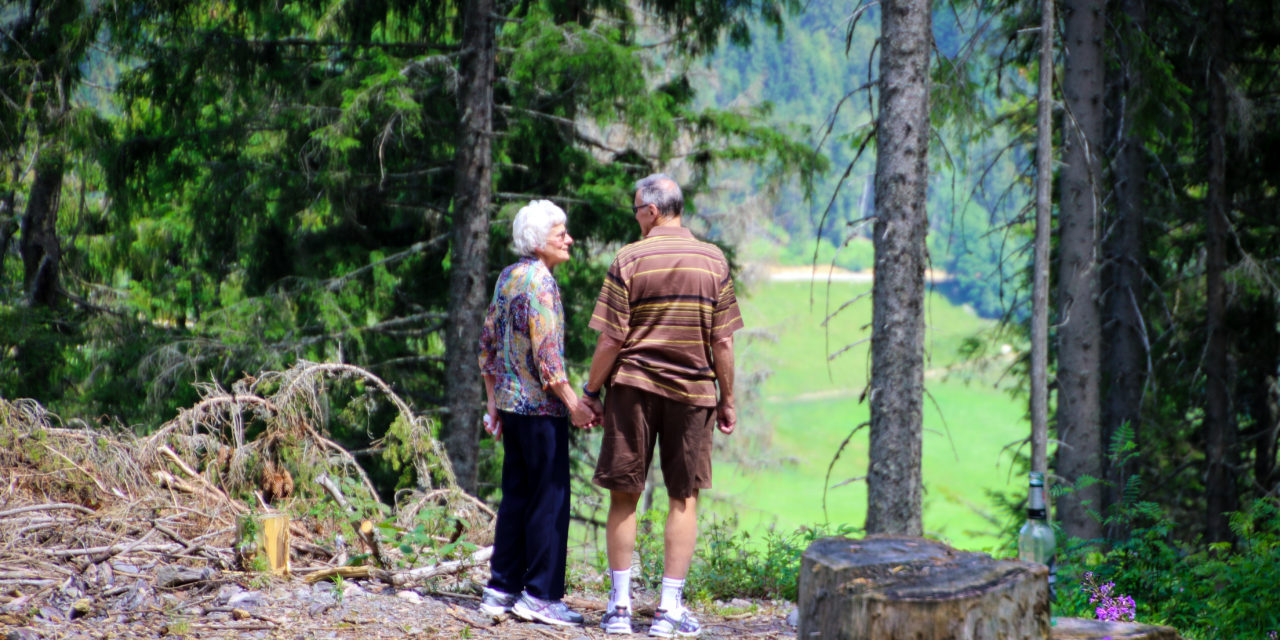When this coronavirus crisis is over and life returns to something more akin to normal, we may wonder what we did with all the extra time while confined to our homes. Did we accomplish anything of significance, or squander the time on TV and lounging around in our PJ’s?
Nobody would wish something as horrible as this COVID-19 coronavirus on our nation and world. It’s a fast-spreading, deadly virus that has wreaked havoc on our society and shut down our economy. It does its greatest damage on those of us in the over-60 age group. Even so, the extra time we’ve been given confined inside our homes and practicing social distancing can be a blessing if used wisely.
So what are some productive ways for senior adults to spend this time? Here’s a list of five tasks that will at least get you to thinking about what you can accomplish during the remaining weeks of house confinement. If you’re married, share this story with your spouse and talk it over. Make a list, and get busy!
Related recent stories from This Retirement Life:
“How to Stay Healthy and Engaged As a Senior Adult During the Coronavirus Pandemic”“How seniors are using covid-19 downtime productively”
“Coronavirus and Volatile Stock Markets: How Retirees Can Cope During the Pandemic”
Task # 1
Discuss financial, bill-paying details with your spouse or children
In most married households, one spouse is the primary financial manager. He or she pays the bills, balances the checkbook, talks with investment and tax professionals, and manages the IRA, 401(k) or other retirement accounts. Now would be a good time to sit down together, husband and wife, and review how the bills get paid, how much savings is available and where it’s kept, and to share the names and contact information for financial and tax professionals. While we may not want to think about it, the reality is that one day our spouse may have to assume responsibility for the family finances when we’re no longer around or capable. The coronavirus has driven that fact home. Let’s be sure we don’t leave our spouse in the dark, unaware of the details he or she will need to manage effectively.
Even if you have a “money talk” together, it’s still a good idea to create a document for your spouse that details the financial side of your life together — how bills get paid, where the money is kept, who to contact. Print a copy and give it to your spouse or file it with important papers that your spouse is familiar with. If you are comfotable with technology, it’s best to keep this document on a computer so you can review it periodically and update it. It’s a good habit to update it at the start of each new year. (Tip: You might want to pause a minute here and add this as a recurring annual event on your cellphone’s calendar.)
For widows and widowers, in most cases you need to have this discussion with the adult children. It’s not just your death that you need to think about, but the time may come when you are physically or mentally incapable of managing your finances. One or more of your children may need to take over. Make sure they know where the important papers are and who to contact.
Hopefully your children are responsible and have your best welfare at heart, but unfortunately sometimes there is a child who can’t be trusted with this type of personal information. You probably know if you have one of those children. In that case, be careful about sharing financial information with them. Instead, make sure your professional team — your financial planner, tax preparer, banker, or attorney, are aware of the situation. They can advise you on how best to arrange your affairs and protect your assets in the event of your decline or capacity.
Task #2
Reduce the clutter and start downsizing
Speaking of children, one of the biggest favors we can do for them is to clean up our junk. We all accumulate far more stuff than we need, and many of us have a hard time letting go of it. It’s unfair to our kids to leave them a huge mess that they must then sort through and clean out.
So why not use these weeks of coronavirus-induced confinement to reduce the clutter and start downsizing?
You may think your kids will appreciate your leaving collectibles, china and crystal sets, old furniture, and other treasured items to them. Sorry to disappoint you, but for the most part our kids aren’t interested. Times have changed. Tastes have changed. Today’s younger generations don’t value these family and household treasures the way we do. They aren’t going to put a china cabinet in their dining room, if they even have a dining room, and fill it with crystal and knick-knacks. The market value for most collectibles has collapsed because nobody wants them.
Talk it over with your children, but let the kids know you want them to be completely honest with you. Otherwise, they may guard their words if they sense you are going to be upset if they tell you how they really feel.
For a further discussion on this topic, read this recent story about changing views regarding collectibles and old stuff, or see this previous story we wrote on This Retirement Life about downsizing.
Task #3
Organize and digitize your old photos
How many boxes of old photos do you have? In the days before iPhones and digital cameras, our generation loved to collect printed photos and make albums with them, large and small. Now, those old photos and albums are mostly tucked away in storage, rapidly fading and turning yellow. Kathy and I are still in the process of sorting through our old photos too, plus cassette tapes and VHS home movies. It’s a common problem for our generation.
So what’s the best solution? Here is a three-step plan:
- Sort through the boxes and albums, throwing out marginal photos, duplicates, and those that are too far gone to be usable. Make yourself a goal to drastically reduce the overall number of photos, perhaps keeping only the best one-third (or less) and throwing out the rest. Allow yourself a few moments for nostalgia and emotion, but don’t let the project bog you down. Keep moving until you’ve gone through all the photos once.
- With the photos you wish to keep, have them digitized as soon as possible. You can do this yourself with a good home printer, but it’s a very time-consuming job. We sent our photos to Legacy Box, one of several services that will take your photos, convert them to a digital format suitable for viewing on a cellphone or computer, and then ship them back to you, with your photo on a CD or flash drive. Digital photos loaded to your computer won’t continue degrading the way print photos do. You also don’t have to worry about fires, floods or tornadoes destroying your precious family photos.
- Now that you are down to a much smaller number of well-composed, well preserved photos that best tell your family’s story and have been copied into a digital format, consider putting at least some of them into albums for easier viewing. Be sure to select an archival album that will hold up over the years and protect your photos. This blog story explains what to look for when buying a photo album. By the way, don’t assume your children or grandchildren will know who’s in the photos. Add cutlines under the photos with names, relationships and where/when the photo was taken — or at least your best guess. Your descendents will appreciate this.
These three steps will bring order to the chaos of old photos. You’ll be pleased with yourself when the task is completed.
Task #4
Learn a new technology skill
Can you imagine what it must have been like to be confined at home during the Spanish flu a century ago with no TV, cellphones, Internet, texting or social media. Also no Zoom, FaceTime, Skype, Facebook Messenger, or Google Duo video calling. Technology has proven to be a huge blessing during this coronavirus pandemic. We can stay in touch with family and friends. We can waste hours browsing Facebook. We can even continue to enjoy worship services (online) from our church or other houses of worship.
Because technology is ever evolving and such an important part of our modern world, now would be a great time to expand your tech skills.
One good place to start would be to master the new and popular Zoom video service, which makes group video calls easy. You can invite the children and grandchildren to all join in on a single video conference call. If you don’t want to learn Zoom, you can use one of the other popular video calling services such as Apple’s FaceTime, Microsoft’s Skype, Facebook’s Messenger, or Google’s Duo. While you have this extra time on your hands, pick the video calling service of your choice and spend time mastering it. You can do this by downloading the necessary apps for your computer, iPad or cellphone and setting up an account. Next, go to YouTube and search for how-to videos that will teach you how to use the service. In one hour’s time, you can become your family’s go-to source of information for video calling. Your grandchildren will be impressed! (Tip: You can learn how to use nearly all products by searching for them on YouTube).
Another great tech product for senior adults to learn is Amazon’s Alexa service for the home. This is the popular voice-activated home companion that can tell you the weather, read your calendar items for the day, tell you jokes, or play your favorite music. You get started with Alexa by purchasing one or more Amazon Echo devices. Plug it in, synch it with your home’s Wi-Fi service, and you’re ready to go.
Once you get used to Alexa, you will find more and more uses. For example, Alexa is great in the kitchen. You can ask your Echo device for measurements like “Alexa, how many ounces are in a cup?” You can set timers for cooking, which is so much easier than using the oven’s timers because it’s voice-activated and hands-free. Alexa also works with Ring doorbells, another popular Amazon product.
Our family’s favorite Alexa device is the Echo Show. What’s different about the Show is that it has a screen. If your children or grandchildren also own an Echo Show (Tip: Home tech items like an Echo Show make great Christmas gifts), you can make video calls easily just by saying “Alexa, call (person’s name).” In the kitchen, you can access recipes and watch cooking videos. You can even watch a limited menu of TV shows and movies on a Show device, especially when paired with Amazon’s Prime Video service.
Echo Show comes in both 5 and 8-inch models. The smaller 5-inch Echo Show fits nicely by the bedside and makes a great alarm clock. The larger 8-inch model is better for living rooms or for video calling or watching movies. The larger one also has better speakers for listening to music.
Want to become your family’s Alexa expert? Like with video calling, all you need to do is spend some time on YouTube. Alexa is not hard to learn. There are plenty of how-to stories on the web as well, like this one from c/net. Both Amazon and c/net offer free weekly email updates about Amazon Alexa and using Echo devices if you care to subscribe.
Google makes a competing product called Google Home. Like with Alexa, you can buy Google Home devices in various shapes and sizes. Just like Ford vs. Chevy, some people prefer Amazon Alexa and some like Google Home. You’ll have fun with either system.
Task #5
Update your will and important documents
Surveys confirm that the majority of Americans do not have a will, the most simple legal document for planning your estate. Even among those 65 and over, nearly one-third do not have a will. That’s a shame because without a will, the state will decide how your estate is distributed, not you. Your estate may incur added expenses, and details of your estate may be available to the public.
A productive way to use this extra time during the coronavirus crisis would be to talk with an attorney about your estate. Most of us only need a will, but some families benefit from having one or more trust documents. While a do-it-yourself will that you can download from the internet may be better than nothing for the most simple estates, we don’t recommend it. Estate planning is too important to leave to amateurs. Hire an attorney who is competent in drafting wills and familiar with estate planning. Do it right.
There are other important documents to consider, which your attorney will most likely discuss with you. They include everything from healthcare directives to powers of attorney. For a more detailed discussion of wills and other important legal documents that every senior adult should consider, please see our previous story from This Retirement Life.
Now is the time!
We may never have a better time to tackle some of the five above tasks. The good news is you can still accomplish most of these items while wearing your PJs. You may miss a few classic re-runs on Netflix, but at the end of the day you will be more pleased that you successfully executed one or more important tasks while everyone else was killing time.
Got comments? We love to hear from our readers! Please scroll down and add your comments in the section below.
* * * * *
Subscribe via email for free to receive all future stories from This Retirement Life. Our blog explores topics of interest to retirees and those planning for retirement. Please see subscription information to the right of this story or below, and sign up today.









Thanks Dave, another great article. Now that I have a badly sprained ankle in a boot it has limited what I can do significantly. No more riding my bike down our lonely Street, or going for walks or standing and working at my Longarm quilting machine (Sorry Kathy you’ll have to wait), but you have given me several really good ideas of things I can do while my foot is propped up. I have a lot of photographs I can go through. Thanks again!
Sorry about your sprained ankle, Nancy. Hope it heals quickly.